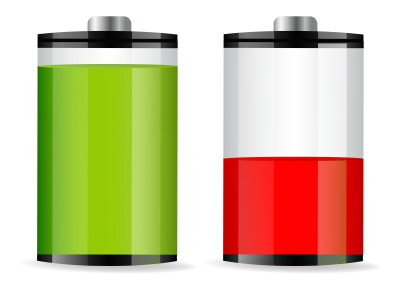
English information about the battery seminar in Munich and Vienna
Short information for all international visitors of IceSeminars
IceSeminar invites you to this special two day seminar with the international renowned battery expert Shmuel De Leon. International participants are welcome and the seminar language is English.
Next planned dates are: Q3/Q4 2018 in Munich - InHouse on request
For information in German click here
Please take the time to answer the "global chemical energy industry snapshot 2014" Ten minutes of your time to improve the industry.
Seminar Program Topics – short overview
Here we summarize the agenda of the seminar
- Battery characteristics of primary cells & batteries, rechargeable cells & batteries and fuel cells
- Battery design process, battery testing systems and battery design optimization
- All issues and topics along the battery life cycle
- Energy solutions for electric vehicles
Features
- a "hands-on" and relevant seminar by a renown expert.
- you get all seminar documents (300 pages/value: 250€) including checklists and information about industry tools.
- price includes documentation, refreshments and lunch.
Battery, accumulators and fuel cell types
The following list illustrates the various types of cells the seminar will discuss. Please see the PDF for a detailed description of seminar modules and topics.
Battery types:
Alkaline Manganese Dioxide, Zinc Carbon, Zinc Chloride, Silver Zinc, Nickel Oxyhydroxide, Lithium Iron Disulfide, Lithium Iodine, Lithium Manganese Dioxide, Lithium Carbon Monofluride, Lithium Sulfur Dioxide, Lithium Thionyl Chloride, Lithium Sulfuryl Chloride, Lithium Bromine Chloride and High Power Organic Lithium.
Rechargeable battery types:
Nickel Cadmium, Nickel Metal Hydride, Rechargeable Alkaline, Lithium Ion and Lithium Polymer
Fuel cell types:
Alkaline, Molten Carbonate, Phosphoric Acid, Proton Exchange Membrane, Solid Oxide and Direct Methanol
All modules overview
|
Modul 1: Battery Characteristics
This session introduces a historical prospective of batteries, detailed battery definitions and features (electrical, mechanical, standards, etc.). Module 1 lays the foundation for the attendants to share a common "battery language" and provides all the background needed for upcoming modules.
|
Modul 2: Primary Cells & Batteries
This session reviews and compares primary battery chemistries (Alkaline Manganese Dioxide, Zinc Carbon, Zinc Chloride, Silver Zinc, Nickel Oxyhydroxide, Lithium Iron Disulfide, Lithium Iodine, Lithium Manganese Dioxide, Lithium Carbon Monofluride, Lithium Sulfur Dioxide, Lithium Thionyl Chloride, Lithium Sulfuryl Chloride, Lithium Bromine Chloride and High Power Organic Lithium).
|
Modul 3: Rechargeable Cells & Batteries
This session reviews and compares rechargeable batteries chemistries (Nickel Cadmium, Nickel Metal Hydride, Rechargeable Alkaline, Lithium Ion and Lithium Polymer).
|
Modul 4: Battery Chargers
This session reviews battery chargers, charging techniques per battery chemistry, charging problems and solutions, personal chargers, industrial chargers and charger types by charging time. |
|
Modul 5: Military Batteries
This session reviews and compares Military batteries & Chargers (Primary, Rechargeable Batteries).
|
Modul 6: Thermal & Reserve Batteries
This session reviews and compares Thermal and Reserve batteries (Thermal Batteries, Reserve Lithium Batteries, Reserve Zinc Air, Reserve Magnesium Silver Chloride and Reserve Silver Zinc).
|
Modul 7: Battery Design Process
This session introduces battery design processes (cell and raw materials selection, cell level testing, battery design documents, battery electrical, mechanical and safety design and final verification tests (electrical, mechanical, safety).
|
Module 8: Battery Design Optimization using the Energy Sources Database
This session introduces the unique battery design tool of the Energy Sources Database that easily helps select the optimal cells and raw materials for your design. This session is designed to provide training on how to use this tool and understanding its advantages, such as finding suppliers and information in the field. |
Modul 9: Battery Safety
This session introduces the safety risks along the battery cycle life and provides safety guidelines for safety event elimination. Module 8 also addresses the procedures involved in handling safety events, including first aid. |
Modul 10: Battery disposal
This session introduces battery disposal requirements and updates disposal status in Europe and the US. |
Modul 11: The "Smart Battery"
This session introduces the "Smart Battery" technology, including single wire and smart battery communications bus and its advantages.
|
Modul 12: Battery Testing Systems
This session introduces battery testing techniques, available systems and their features.
|
|
Modul 13: Battery Holders
This session introduces and reviews the common market battery holders and guides on how to select the right battery holder for your battery.
|
Modul 14: Fuel Cells
This session reviews and compares fuel cell types and their market status (Alkaline, Molten Carbonate, Phosphoric Acid, Proton Exchange Membrane, Solid Oxide and Direct Methanol).
|
Modul 15: Ultra Capacitors
This session reviews and compares ultra capacitor types and their market status.
|
Modul 16: Electonic vehicels energy solutions
This session introduces EVs driving range problem and energy solutions.
- The new electric automotive revolution
- EV Batteries
- EV Fuel Cells
- EV Metal Air systems
- EV Battery SWAP- EV Battery Chargers
|
What do participants say?
Javier Alday
“Shmuel De-Leon's seminar provides a very comprehensive overview on all the aspects related to batteries and fuel cells in a very didactic manner supported by the wide experience of Shmuel in this industry.”
Javier Alday
Energy Technological Director
CEGASA INTERNATIONAL
register now
Register now and grow your business
{jb_link}Register now{/jb_link}
